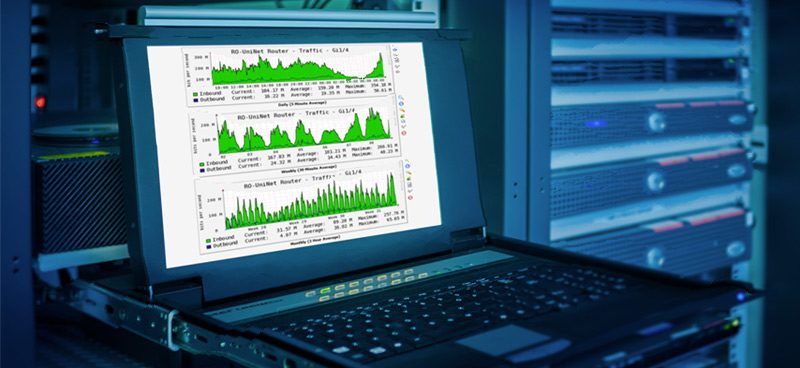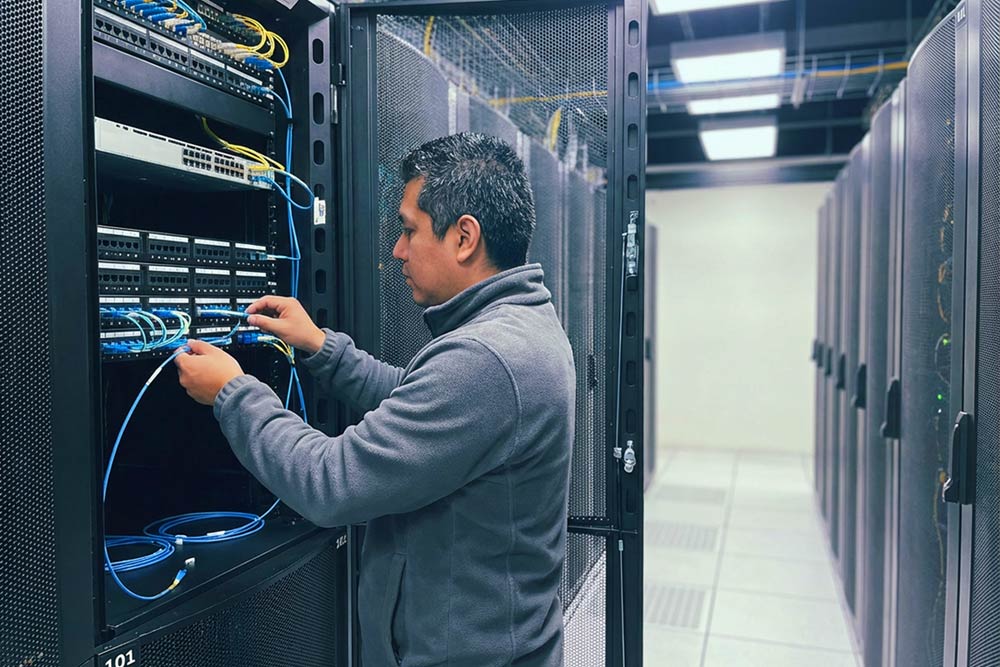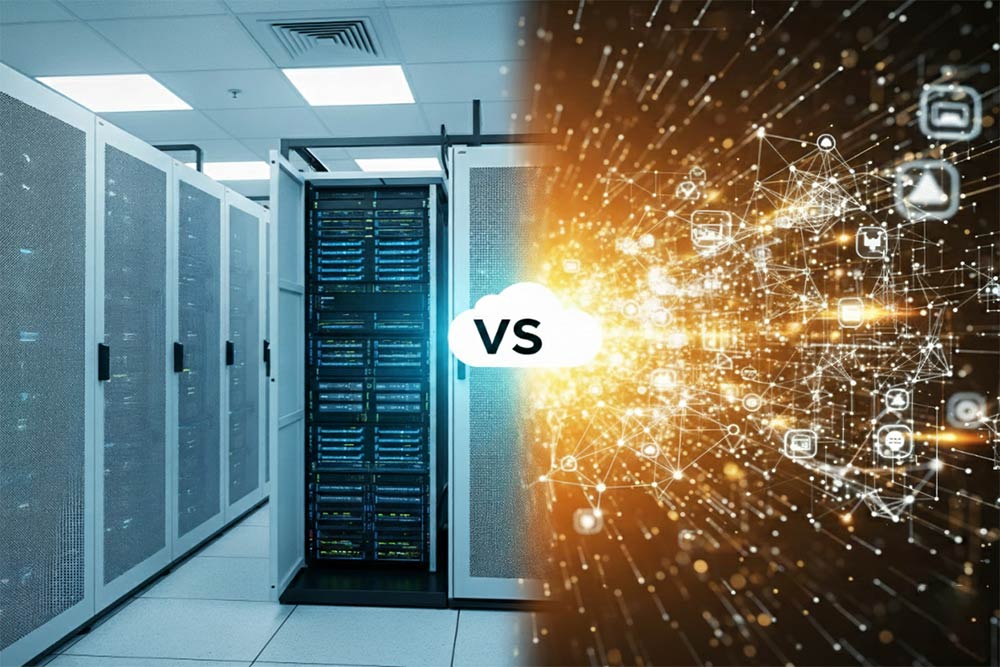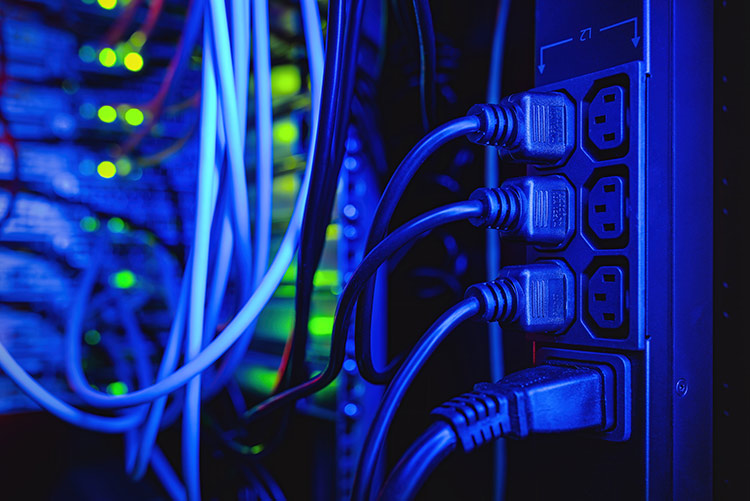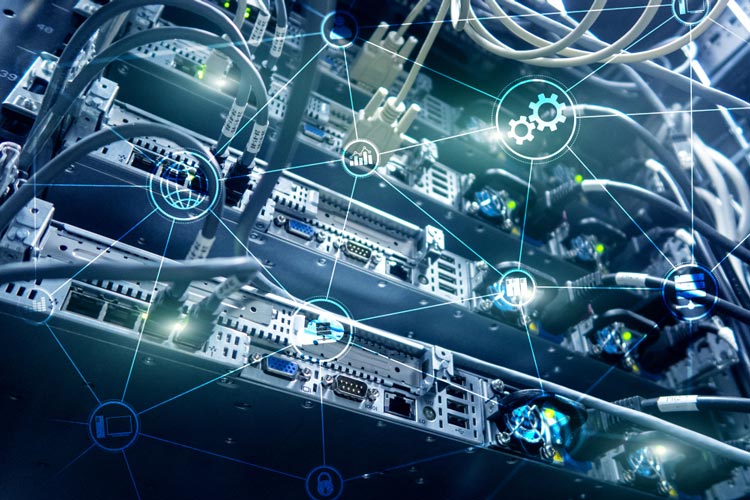Computer networks are akin to railway traffic systems. They need to ensure that multiple trains (with multiple cars) using a small number of railway lines operate efficiently. Efficient operation means that that the trains don’t collide and that they reach their destinations on time.
Computer traffic within or across networks must handle billions of bits of information, speeding across network cables and lines that must reach their destination on time. There are many sophisticated ways that computer networks and algorithms handle the small- and large-scale transmission of computer information. The most effective way is through load balancing. Hardware load balancing is an older option; a newer, more cost-effective option is cloud load balancing.
Hardware Load Balancing Defined
A hardware load balancer is a physical device that helps distribute or route web traffic across multiple network servers. A variety of factors are used to help with the distribution. Some of these factors are:
- Proper utilization of the servers
- The number and quality of the connections between the servers
- The performance of the servers
- The way the traffic is routed (these are the algorithms used to manage the transmission of information)
There is a sophisticated calculus that is used to balance these factors in order to reach optimal performance levels.
Effective hardware load balancing means that servers are not over-or under-used and that the computer bandwidth is maximized. Good hardware load balancing helps minimize downtime and can even help against the introduction of malware and cyber-attacks.
Cloud Load Balancing Defined
Cloud load balancing is also called Load Balancing as a Service (LBaaS). It is a modern alternative to hardware load balancing. It allows for web traffic to be managed and balanced by outside data centers instead of internally by the business. Cloud load balancing is very desirable for large, distributed environments.
Hardware Load Balancing vs. Cloud Load Balancing
There are pros and cons to each type of network traffic balancing. Some of the factors a knowledgeable data service representative reviews with you are the size of the business and the type of business involved. Key factors that favor cloud load balancing over hardware load balancing are:
- Cost factors. Cloud load balancing is often more affordable than multiple servers because of the high cost of hardware. The capital and maintenance costs are generally much cheaper with cloud load balancing than hardware load balancing.
- Global Server Load Balancing (GSLB). GSLB manages traffic across the planet. If the company has business relations in different nations, it must be prepared to manage network traffic across nations. Cloud balancing is much better suited to handle disasters by transferring traffic to the foreign server and is better for handling daily performance issues than hardware load balancing.
- Ease of setup and use. Cloud load balancing is a clear choice here.
- Scalability. Cloud load balancing is often more scalable, which means it is easier to add on new network traffic demands as the company’s needs grow.
- Compatibility. Generally, hardware load balancers are only compatible with other hardware load balancers, while cloud load balancers are compatible with both types – hardware and cloud.
Both hardware and cloud load balancing should be prepared to handle distributed algorithms. These are the algorithms that handle network traffic. Common types of network distribution algorithms are round-robin, the lowest number of connections, and the least pending requests.
Other factors that should be reviewed are network layer load distribution, application layer load distribution, and reliability.
Get Skilled Help with your Network Balancing Needs by Contacting Volico’s Representatives Today
The proper load balancing solution can mean the difference between smooth and efficient computer operations and constant delay and poor performance. Simply put, it can mean the difference between happy and unhappy customers. To review all your load balancing options, including managed services, please call Volico today at 888-865-4261 to speak with a knowledgeable technology solution provider.
Ready to See How Volico Data Center Can Help You?
Got questions? Want to talk specifics? That’s what we’re here for.
Have one of our friendly experts contact you to begin the conversation. Discover how Volico can help you with your Managed Hosting needs.
• Call: 888 865 4261
• Chat with a member of our team to discuss which solution best fits your needs.

